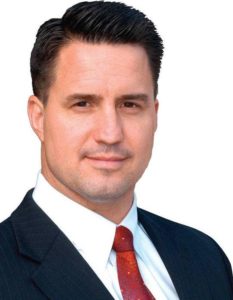Frequent contributor to “Daylight Atheism” blog, James Haught, gave us a taste of the rising attacks on Christianity and Christian education in the Times and Democrat. Mr. Haught has previously made clear his Atheist worldview and associated disdain for Christians in Daylight Atheism (Daylight “defends the atheist viewpoint and argues that discarding religious belief is a liberation and the gateway to a moral life filled with purpose and joy”).
Mr. Haught’s recent article “Dinosaurs on Noah’s Ark” certainly fits the mission of aggressively attempting to “discard” Christianity from American life. Through ad hominem lampooning of Christian beliefs, while twisting current stories and court cases, Mr. Haught displayed his signature contempt of believers. Despite the emotive hyperbole, Haught failed to do what he claims makes Atheism superior: An objective and fact-based coherent argument for his position. Let me explain.
First, to give one small taste of Mr. Haught’s contempt for religious Americans, Haught wrote the following: “Intelligent, educated Americans should pity the children from born-again families who suffer indoctrination with such right-wing hate and superstition. When the youths enter adult life, they’re ill-equipped for modern society.” Mr. Haught also claims that teaching children the Biblical story of Noah’s Ark to be “a form of child abuse to teach such lies to youngsters.” In Mr. Haught’s prior writings for Daylight Atheism his disdain for those claiming to be “born again” seethes to a bizarre extent we see in this latest diatribe.
Through all the threads of anti-Christian hyperbole, Mr. Haught’s primary issue appears to be opposition to  allowing tax credits to those sending their children to Christian private schools (to be argued in front of the US Supreme Court on Jan 22, Espinoza v. Montana). I write “apparent” due to the complete lack of clarity about the issue. Mr. Haught begins by writing “In violation of the separation of church and state, American tax dollars are funneled to fundamentalist private schools teaching crackpot absurdities.”
allowing tax credits to those sending their children to Christian private schools (to be argued in front of the US Supreme Court on Jan 22, Espinoza v. Montana). I write “apparent” due to the complete lack of clarity about the issue. Mr. Haught begins by writing “In violation of the separation of church and state, American tax dollars are funneled to fundamentalist private schools teaching crackpot absurdities.”
He then decries support for a Florida voucher scholarship system of providing parents the option to put children in private schools. Haught twists the reporting of the Orlando Sentinel, which was about all private schools open to vouchers, not of specifically religious or Christian schools. The Sentinel provides anecdotal examples of problems with those private schools.
In his anti-religion screed, Haught did not quote any of the arguments from the Sentinel made in favor of the Florida voucher system. This is important in critical analysis beyond silly anecdotes about dinosaurs and Noah’s Ark: “However, scholarships can be appealing because some private schools offer rigorous academics on modern campuses, unique programs or small classes that allow students more one-on-one attention, among 
Haught’s real target is those who support a 2015 Montana law allowing for relatively small tax credits for those sending their children to private schools. The Montana Supreme Court struck down the law on Constitutional grounds, but the state has appealed the ruling to the Supreme Court, which is to hear Espinoza v. Montana on January 22. That case involves tax credits, not vouchers, and therefore deals with money parents have earned. Those families pay thousands in state taxes, and yet save the state thousands of dollars each year for the children they have not placed in public school. In his usual hyperbole, Haught calls this a “taxpayer funding of faith” and “travesty”, despite the fact this is about all private schools, secular or religious. He confuses matters with attempts to conflate the anecdotal findings in the Orlando Sentinel about the Florida program to Espinoza. It muddles the readers information.
Espinoza v. Montana will be a landmark case for Establishment Clause precedence. Unlike what Haught claims, the US Constitution does not demand a legal and absolute “separation of Church and State”, but demands: “Congress shall make no law recognizing the establishment of religion”. From the beginning the state has recognized the importance of religion in education. Bible reading and School prayer were part of public school until as recently as the 1960s. The preamble to the first government statement about public education (1787) reads: “Religion, morality and knowledge being necessary to good government and the happiness of mankind, schools and the means of education shall forever be encouraged”. Around the same time, founder John Adams said: “this Constitution was made for a moral and religious people. It is wholly unsuited for the governance of any other.”
What men like Haught actually demand is that Atheism become the established religion in America. They do not seek even toleration with Christianity, and do not hesitate to crush all opposition to secularizing America. In previous times, they acted in a much more subtle manner, but are becoming much more bold in their attacks and lampooning. It’s time for Americans to stand up against the distortions of the truth of what’s actually happening with parents, children, and education. The truth about the attacks against religion, and the truth of what our founders put in place for us.




 RSS - Posts
RSS - Posts